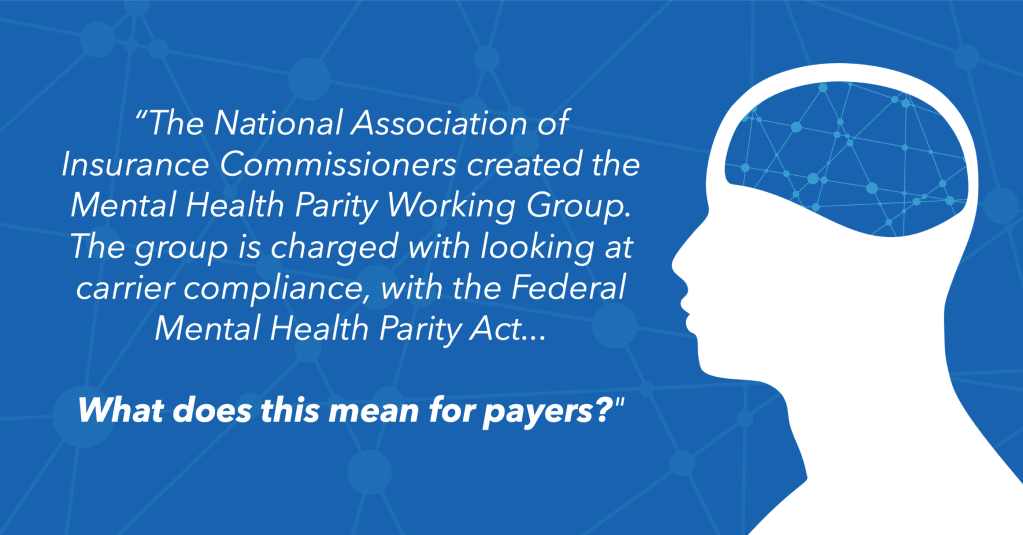Federal Medicaid Network Adequacy Standards

BASIC MCO QUANTITATIVE NETWORK ADEQUACY STANDARDS OVERVIEW This Basic Overview is an overview of what is required of States under current federal regulations.3 At a minimum, a State must develop a quantitative network adequacy standard for the following provider types, if covered under the MCO contract: Primary care, adult and pediatric OB/GYN Behavioral health (mental health and […]
Improving Network Adequacy and Access For Mental Health

Federal and state policymakers are taking a variety of measures to improve access to mental health services and substance use disorder treatments. Network adequacy and access are prominent areas of such a response directly affecting health plans. This blog post informs stakeholders about the increased emphasis on behavioral health networks and tips on how to […]
FAQs and Provider Directory Requirements: Key Tips and Targets

One of the top questions health insurers have asked us lately is: Will I still need to have a provider directory verification process in place by January 1, 2022? Simply put, yes. In this blog, we’re highlighting the essential points you need to know about the FAQs and provider directory requirements. FAQS ABOUT THE PROVIDER DIRECTORY REQUIREMENTS […]
Surprises in the No Surprises Act: New Requirements for Plans and Providers Regarding Provider Directory Information

Copyright 2021 Compliance Today, a publication of the Health Care Compliance Association (HCCA). The No Surprises Act was signed into law in December 2020 as part of the massive Consolidated Appropriations Act of 2021.[1] It is the end result of several prior bills that sought to address the national “surprise bill” problem. In recent years, millions […]
Insights on Price Transparency: Transparency In Coverage

On October 29, 2020, the Department of Health and Human Services (HHS), the Department of Labor, and the Department of Treasury released the final version of the Price Transparency Rule. The rule requires most private health plans (self-insured, ERISA), including group health plans and health insurance issuers to publicly disclose the rates they pay healthcare […]
New Metrics are Critical to Addressing Mental Health Access Concerns

Our new normal is far from normal. There is this level of incredible, nonstop uncertainty around our current situation, and none of us are immune. CDC data, collected in late June, noted an increase month-over-month in mental health issues. It showed that 40 percent of adults struggled with anxiety, depression, suicidal thoughts and substance abuse1. […]
Quest Analytics to Measure Adequate Access to Care for Medicare Advantage, Medicare-Medicaid and Pharmacy Plans

OVERLAND PARK, KS, September 15, 2020 – Quest Analytics, the leader in provider network accuracy and adequacy solutions announced today the Centers for Medicare & Medicaid Services (CMS) has extended their contract with Quest Analytics for an additional five-year term to measure the adequacy of all Medicare Advantage Part C & D and Medicare-Medicaid Health Plans’ (MMP) provider, […]
The Rebirth of Network Adequacy: Modernizing Health Plan Practice

Reprinted from The URAC Report. Nearly two months ago now CMS finalized changes to Medicare Advantage (MA) and Part D for 2021 and while I previously covered the new telehealth network adequacy provisions, I’ve been meaning to do a deeper dive into how network adequacy as a whole has changed in recent years. To do this, I reached out to Cari […]
Preparing for the Era of Provider Network Transparency

Copyright 2020 Compliance Today, a publication of the Health Care Compliance Association (HCCA). Transparency is one of the top buzzwords in healthcare today. In the last few years, we have seen the rollout of significant healthcare transparency initiatives focused on portable health records, hospital costs, drug costs, quality data, and many other things (e.g., Executive […]
Rule Raises Questions About Telehealth, Directory Accuracy

Reprinted with AIS Health permission from the July 2, 2020, issue of RADAR on Medicare Advantage. As Medicare Advantage and other insurers report increasing use of telehealth during the COVID-19 pandemic and consider the larger role that virtual visits could play on a more permanent basis, CMS recently finalized a set of policies for 2021 giving […]







